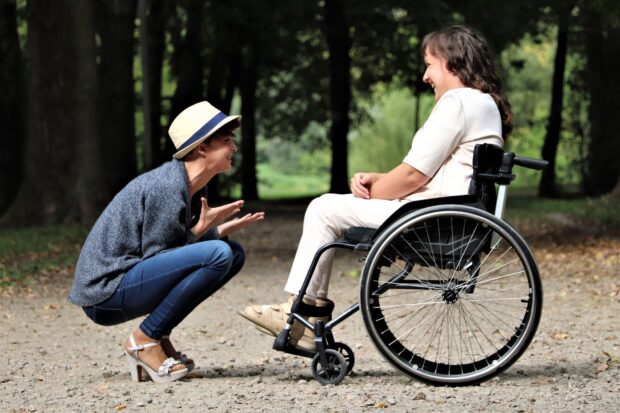Disabilities come in various forms. Some are visible, while others aren’t readily noticeable. Whichever one a person has affects how they live their life. Often, it makes living day to day more challenging.
When someone has a disability, everyone in their household must work together. Caring for a person with a handicap requires extra involvement among those around them. They need a bit more attention and support to live comfortably.
If you live with someone with a disability, the more you’ll have to take responsibility for caring for them. Read this article for valuable care tips for your loved one.
1. Prepare Finances For Them
A disability is a lifetime condition that requires regular checkups, maintenance, and supplies. It’s not easy caring for someone with a handicap when you and your finances don’t see eye to eye. So, check if your loved one has disability insurance or if they’re eligible for a disability pension. They may receive a monthly or yearly allowance to finance their medical needs.
Involving a health plan management team will also help you and your loved one manage medical funds better. With the proper financial assistance and guidance, your relative may have the opportunity to find good jobs despite their condition.
2. Create And Stick To Schedules
Having a schedule in place makes it easier for those with disabilities and their loved ones to adjust to changes at home. Make one to ensure your relative gets enough care during the times they need it. That way, you’ll have specific windows in the day to attend to them without distractions.
Schedules also benefit the caretakers. Watching over a person 24/7 is tiring and stressful for anyone. The plan exists to allow you to get enough rest and have time for yourself. Your loved one can receive better care if you and the people of the household are in excellent physical and mental condition.
Take things slowly when needed. People with physical disabilities can’t always move the same way as their able-bodied counterparts. There will be days when they can’t follow the schedule due to various issues or hindrances. Even if you must stick to your timetable, be open to possible changes that make your loved one’s daily life easier.
3. Stay Informed
A new world opens when you know someone with a disability. You’re exposed to information relevant to your loved one’s condition. Learning that knowledge helps you support and care for them properly. You must know the terminologies and techniques to avoid offending or harming your relative and break the stigma of disabilities.
Joining a support group of fellow caretakers will teach you many things about living with someone with a disability. Spending time with people who’ve experienced similar situations will be relieving for you, especially if you have children or younger siblings with disabilities. The earlier you gain information, the better caretaker you’ll be for your loved one.
4. Personalize Care And Assistance
No two people are entirely alike; the same goes for people with disabilities. A care method for someone with hearing loss may not work for your loved one, even if they’re also hard of hearing. So, you must customize how you offer physical and emotional help based on that person’s condition and lifestyle.
Avoid forcing your relative to perform activities that make them uncomfortable. You could increase their stress or worsen the pain they may have. Ease them gently instead. A person’s handicap doesn’t take away their sense of self. You must consider these people’s thoughts, feelings, and wants when creating a personalized care program for them.
5. Allow Them Moments Of Independence
The last thing anyone with a disability wants is to feel useless. Many people with handicaps can still perform specific tasks, and to prohibit them from doing them is not showing support. If they are aware of their surroundings and have a sound mind, let them make their own decisions.
The choice to do what they please gives them a sense of purpose. It can be anything as simple as the following:
- Meals to eat for the day
- Places to go
- Clothes to wear
- People to meet
Their disability may already impede the other things they want to do in life. So, allow them these windows of freedom in their already stressful circumstance. Let them relieve anxiety and stress in the ways they know best and only step in when they need extra help.
Provide Care With Understanding And Gentleness
Disabilities are often a lifetime challenge for the person with it and their family members. However, the difficulties shouldn’t hinder you from providing adequate care for your loved one. Even if your relative with a disability is independent, you should always be alert and responsive to their needs. Your prompt attention shows that you’re someone whom they can depend on.
Be firm and gentle and create a care plan that suits their lifestyle. There’s no one-size-fits-all method to caretaking. But the tips above are the basics that should help you and your relative live a life with fewer worries.

